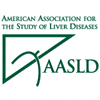 Twelve weeks of Bristol-Myers Squibb’s “TRIO” combination pill, given with ribavirin, cured 93 to 98 percent of people with genotype 1 of hepatitis C virus (HCV) who had cirrhosis in a recent trial. The combo pill was less successful in this demographic when given without ribavirin.
Twelve weeks of Bristol-Myers Squibb’s “TRIO” combination pill, given with ribavirin, cured 93 to 98 percent of people with genotype 1 of hepatitis C virus (HCV) who had cirrhosis in a recent trial. The combo pill was less successful in this demographic when given without ribavirin.
The UNITY-2 trial was a Phase III, open-label study of cirrhotic genotype 1’s, including both treatment-experienced and treatment-naive participants, who received the fixed-dose, twice-daily combination pill of the NS5A replication complex inhibitor daclatasvir, the NS3 protease inhibitor asunaprevir and the non-nucleoside NS5B polymerase inhibitor beclabuvir for 12 weeks. A total of 100 participants took TRIO with ribavirin and 102 took the tablet without ribavirin. The study was double blinded to ribavirin. Results were presented at the Annual Meeting of the American Association for the Study of Liver Diseases (AASLD) in Boston.
Seventy-three percent of the participants were genotype 1a.
Of study participants who took ribavirin, 96 percent achieved a sustained virologic response 12 weeks after completing therapy (SVR12, considered a cure), including 98 percent of the treatment-naive participants and 93 percent of the treatment-experienced participants. Ninety percent of the study participants who did not take ribavirin were cured, including 93 percent of the treatment-naive participants and 87 percent of the treatment-experienced participants.
There were three cases of serious adverse events related to treatment and four that led to discontinuation of treatment. The most common side effects were headache and fatigue, both reported by 20 percent of participants.
“The Phase 3 UNITY results for the daclatasvir TRIO fixed-dose combination are particularly compelling for genotype 1 patients with cirrhosis, whose treatment is often harder to manage than non-cirrhotic patients,” said Douglas Manion, MD, head of specialty development at Bristol-Myers Squibb. “BMS continues to recognize that HCV is an extremely complicated disease with no ‘one-size-fits-all’ treatment solution, and the UNITY results are especially promising for serving patients with cirrhosis, a specific but significant portion of genotype 1 patients.”
To read the press release, click here.
Advertisement
Advertisement
Advertisement






Comments
Comments